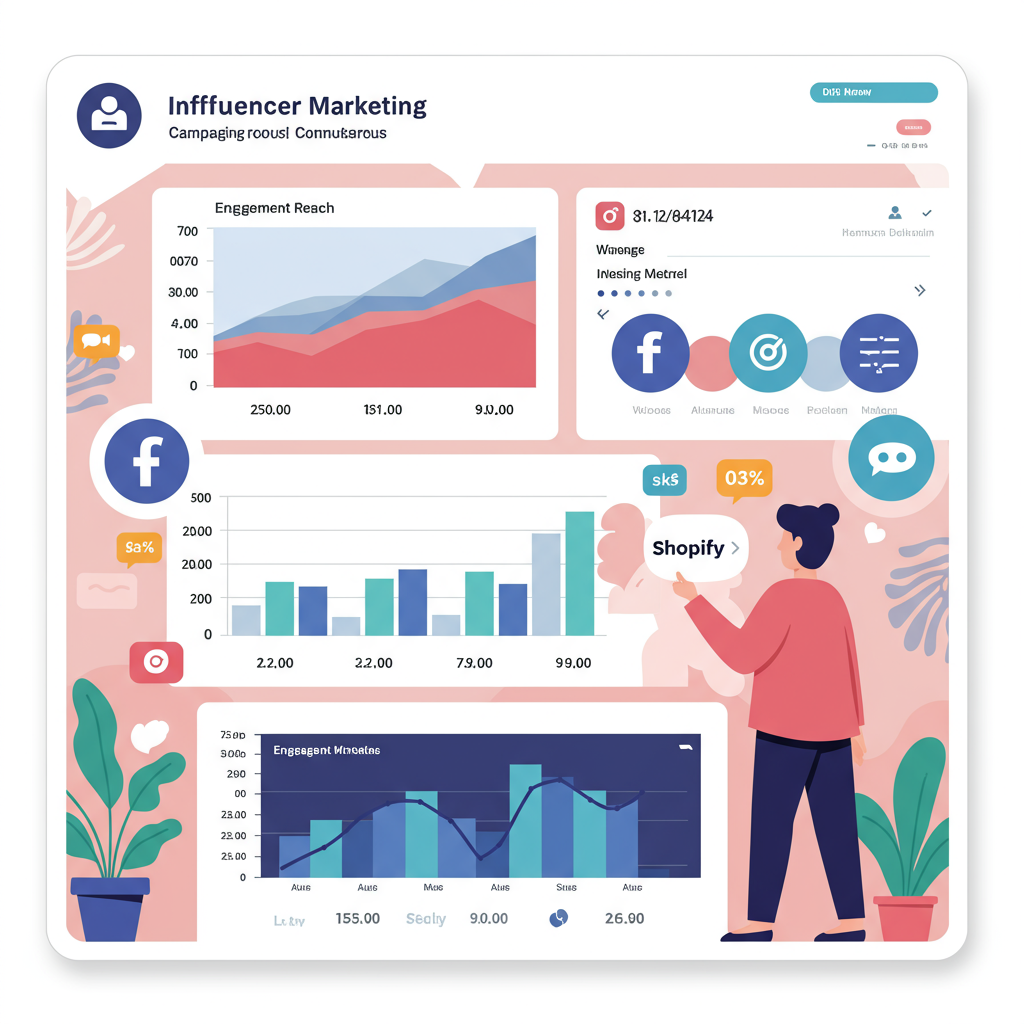Discover how dedicated platforms can revolutionize your e-commerce strategy and drive significant sales for your Shopify store.
As a Shopify merchant, you’re constantly looking for innovative ways to grow your brand and reach new customers.
In today’s dynamic digital landscape, one of the most powerful strategies at your disposal is influencer marketing.
It’s about leveraging the reach and credibility of individuals who have built a loyal following online.
These influencers can introduce your products to an audience that trusts their recommendations, often leading to higher conversion rates than traditional advertising.
However, the idea of diving into influencer marketing can feel overwhelming, especially when you’re managing a bustling Shopify store.
How do you find the right influencers? How do you manage campaigns efficiently? And crucially, how do you track results effectively to prove ROI?
This is precisely where Shopify influencer marketing platforms come into play. They are specifically designed to streamline the entire process for you.
Think of them as your all-in-one solution for discovering, connecting with, managing, and analyzing your influencer marketing efforts.
My goal with this article is to demystify these platforms and show you how they can become an invaluable asset for your Shopify business.
We’ll explore what these platforms offer, why they are so beneficial, and what key features you should prioritize when choosing one for your brand.
First, let’s understand the core problem they solve: the sheer complexity and time commitment of manual influencer outreach.
Without a dedicated platform, you’d be sifting through social media profiles, sending countless direct messages, tracking collaborations in spreadsheets, and manually processing payments.
It’s a huge time sink that can quickly become unsustainable as your brand grows.
Influencer marketing platforms automate much of this heavy lifting. They provide extensive databases of influencers, often categorized by niche, audience demographics, and engagement rates.
This means you can quickly identify potential partners who align perfectly with your brand’s values and target audience, saving you countless hours of research.
Beyond discovery, these platforms offer robust campaign management tools. You can set up campaigns, define deliverables, and communicate with influencers all within a single, centralized dashboard.
Many platforms also integrate directly with Shopify, making it incredibly easy to track sales attributed to specific influencers or campaigns.
This direct integration is crucial for accurately measuring your return on investment (ROI) and understanding which partnerships are truly driving revenue.
Payment processing is another significant benefit. Instead of managing individual invoices and payment schedules, platforms often facilitate secure and timely payments to influencers.
Some even automate commission-based payouts, which is a game-changer for affiliate-style influencer programs.
When I consider the features essential for a Shopify merchant, I always look for a few key capabilities that truly make a difference.
**Influencer Discovery:** Does the platform have a comprehensive database with advanced filtering options? Can I search by niche, audience size, engagement, or even specific demographics?
**CRM & Communication:** Is there a built-in system to manage relationships and communicate effectively with influencers? Templates for outreach and contracts are a huge plus for efficiency.
**Campaign Management:** Can I easily create, launch, and monitor multiple campaigns simultaneously? Features like content approval workflows are incredibly helpful for maintaining brand consistency.
**Analytics & Reporting:** This is absolutely vital. Does the platform provide detailed insights into campaign performance, including reach, engagement, and most importantly, sales and ROI? Direct Shopify integration for sales tracking is a must-have.
**Payment & Fulfillment:** How does the platform handle payments? Does it support product seeding, discount codes, or affiliate links seamlessly? This simplifies the operational side immensely.
**Shopify Integration:** This is non-negotiable for us. A deep, reliable integration means less manual data entry, more accurate tracking of sales, and a clearer picture of conversions directly from your store.
There are various types of platforms available, from marketplaces where you can browse and connect, to full-service agencies that manage everything for you, and software solutions that empower your in-house team.
Your choice will ultimately depend on your budget, the size of your team, and your desired level of involvement in the day-to-day management.
For a growing Shopify store, I often recommend starting with a robust software solution that offers a good balance of features and control, allowing you to scale.
Once you’ve chosen a platform, getting started is usually straightforward. You’ll typically set up your brand profile, define your campaign goals, and then begin your influencer search.
Remember to clearly outline your expectations, deliverables, and compensation structure with each influencer. Transparency builds strong, lasting relationships.
As you run your campaigns, continuously monitor the performance metrics provided by the platform. This data is invaluable for optimizing future efforts and refining your strategy.
Don’t be afraid to experiment with different types of influencers or campaign structures. What works for one product or audience might not work for another, so flexibility is key.
Ultimately, these platforms empower you to scale your influencer marketing efforts without scaling your operational headaches.
They transform what could be a daunting and time-consuming task into a manageable and highly effective growth channel for your Shopify store.
I truly believe that investing in the right influencer marketing platform can unlock significant growth potential for your e-commerce business.
It allows you to focus on what you do best: creating amazing products and serving your customers, while the platform handles the complexities of influencer outreach and management.
So, if you’re a Shopify merchant looking to amplify your brand’s reach and drive more sales, I strongly encourage you to explore the world of influencer marketing platforms.
They are not just tools; they are strategic partners in your journey to e-commerce success.
What do you think about this article? I’d love to hear your thoughts and experiences with influencer marketing!






